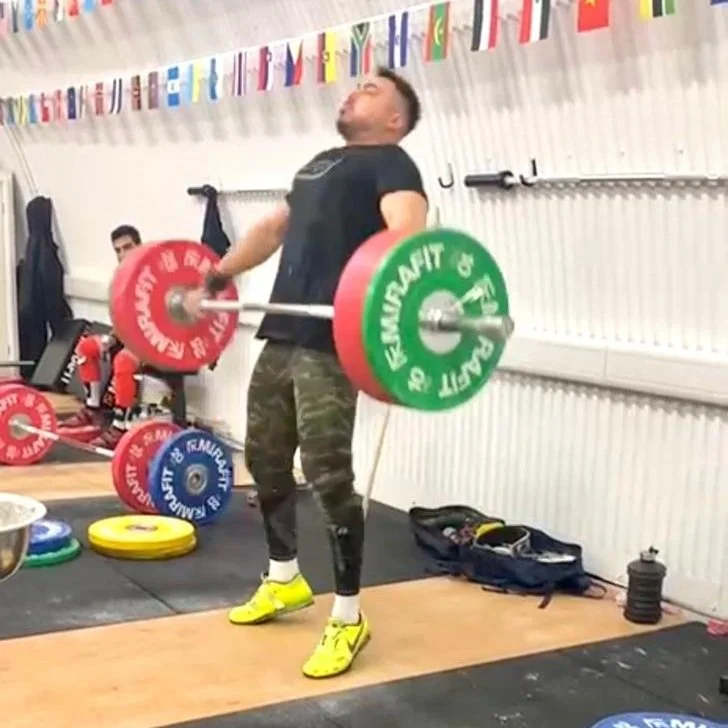Weightlifting tips for tall guys
Is there a perfect height to be a weightlifter? Are taller people at a disadvantage when it comes to getting down into the catch position? What Olympic weightlifting tips, if any, can you give to taller athletes?
In this edition of Mem's Weightlifting Blog, we ask our head coach Mem – one of London's top Olympic weightlifting trainers – these questions and more. Lofty lifters, this one is for you…
Our London weightlifting gym caters to athletes of all abilities — and heights! Book a class and receive tailored advice from our expert coach, Mem.
Tall weightlifter problems?
"I've heard athletes come to the gym and say 'My legs are too long' or 'I have long arms and it's harder to pull the bar up to chest level'.
"In reality, a person’s height shouldn’t make too much difference. The world records for the snatch and clean and jerk are held by Lasha Talakhadze — he's 6 feet 4 inches! Ok, taller people have to move the bar a bigger distance but they also have longer legs and more leverage to play with. Having said that, a few small adaptations can be helpful."
General advice for taller weightlifters
"Generally, it helps taller athletes if their feet are a little wider apart than hip-width. This is usually because they have long femurs, which can force their hip joint further back at the bottom of the squat and cause their upper body to lean forward to stay balanced. In a back squat, this isn't too much of a problem. But when the bar is in the front rack or overhead, it can lead to missed lifts because the athlete will find it harder to stabilise.
"It can also help taller athletes if they keep a wider grip on the bar. Often I see tall people who've done a lot of bodybuilding or have a desk job where they're hunched over a computer and they're very tight in the shoulders. Having a narrower grip will really test that person's mobility when the bar is overhead.”
No two weightlifters are the same
"Being honest though, when it comes to Olympic weightlifting, coaching needs to be tailored to the individual. I don't like giving general tips based on height.
"That's because every weightlifter's body is different. Let's say we have two athletes who are both 6 feet 4 inches. Ok, they're the same height; but if one has longer femurs, shorter arms and less shoulder mobility than the other the advice I'd give would be totally different.
"Ideally, the athlete you're coaching needs to be in front of you so you can physically see them, check how they're moving, judge their hip and shoulder mobility and so on.
"That's why, in my online coaching, I like to see the athlete performing some lifts via video so I can offer them personalised feedback and base the programming around their capability."
